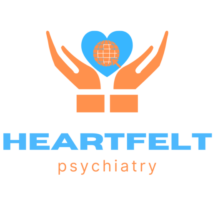Bipolar Disorder
A common disorder that afflicts 5.7 million Americans. It is characterized by periods of mania that may last several days, in which individuals experience anger, fury, and a short temper. Alternatively these episodes may encompass feelings of excitement, euphoria, and happiness.
Depression
Depression is a state which lasts at least two weeks or longer. During this time, individuals experience disturbances in their normal patterns of sleep and diet. Depression may cause rapid weight loss or gain, along with a loss of interest in once pleasurable activities. A general feeling of sadness, negativity, or doom.
Mania
Mania causes individuals to experience over-the-top levels of specific emotions, such as excitement, feelings of invincibility, higher confidence, and happiness. Symptoms of mania can include lack of sleep, feeling stronger than usual, a false perception of success or grandeur, and speaking rapidly.
Does Your Loved One Have Bipolar Disorder?
The best course of action is to learn more about bipolar disorder, encourage your loved one to get help, and to simply be there for them.
How do I know if I have bipolar disorder?
A behavioral health specialist can determine if you have bipolar disorder. If you feel as though you may carry any of the symptoms of bipolar disorder, consult with a physician immediately.
Patients with bipolar disorder are not continuously in a depressed or manic state. They recover from episodes but are always at risk for for having further and stronger episodes if they do not take mood regulating medication or undergoing behavioral health therapy.






Can bipolar disorder be cured?
There is no known cure for bipolar disorder, however treatment can greatly reduce the episodes that come with living with bipolar disorder. Therapy and the right medication can allow individuals with bipolar disorder to live normal, healthy lives.
What if My Loved One Refuses Treatment?
Most individuals struggling with mania don’t realize they are experiencing manic symptoms or exhibiting abnormal behavior. Be patient and continue to encourage them to get help.
How Can Medication Help?
Some medications have been found to greatly reduce manic or depressive episodes that individuals with bipolar disorder experience.
What treatments are available for bipolar disorder?
There are a vast range of treatments for bipolar disorder. The best piece of advice is to first consult with a behavioral health specialist in order to figure out what treatment meets your specific needs.
Some therapy options include medication, psychotherapy, and electroconvulsive therapy. If individuals t acutely manic to were they are in a position to hurt themselves or others, brief hospitalization is an option.

Anxiety
Anxiety is an emotion characterized by worry, feelings of tension and paranoia, along with physical changes like hypertension. There are many different types of anxieties. The major form is General Anxiety Disorder (GAD). Specific phobias are also considered forms of anxiety as well. Symptoms of anxiety include intense worry or fear, rapid heart rate, heavy breathing, sweating, and general tiredness.
PTSD
Post traumatic stress disorder is characterized by anxiety and tense flashbacks that are mostly triggered by a traumatic event. Individuals with PTSD have difficulty recovering from a specific terrifying event, or series of events they were a part of or witnessed.
PTSD can last months or even years if left untreated. Even during treatment and after a while of recovery, certain triggers can reignite intense emotional or physical reactions. Symptoms may include memories of the trauma, nightmares, depression, or anxiety.


ADHD
Attention-deficit/hyperactive disorder is one of the most common neurodevelopment disorders that children and young adolescents experience. ADHD is chronic, and it leads to impulsiveness, hyperactivity, and inability to focus. ADHD has been found to contribute to interpersonal and relationship problems, self-esteem issues, and general difficulty executing tasks.
OCD
Obsessive compulsive disorder is characterized by uncontrolled thoughts (obsessions) that lead recurring behaviors (compulsions). OCD causes individuals to have obstructive patterns of thinking that incorporate irrational fears from deviating from rigid habits. These habits are usually centered around phobias, or the need to arrange things in a specific way.

Substance Use Disorder & Addictions
Substance use disorder, or drug addiction is a disease that afflicts individuals and causes the inability to limit or control the use of legal or illegal drugs. Substances like alcohol, amphetamines, opiates, nicotine, and marijuana are considered drugs. Being addicted leads to the continued use of these substances despite their many harms.
Addictions come in many forms. Substance use is only one of many addictions. Addictions are characterized by any action or habit that causes you to have compulsive behavior leading to partake in the addictive habit, craving the habit or action, continuing the action or habit despite negative consequences, and total loss of control.
Personality Disorder
Personality disorder is characterized by an unhealthy, unyielding pattern of processing thoughts and carrying out behaviors. Individuals with personality disorder may not realize they have personality disorder, because their perception and thought process seems totally natural to themself.
Individuals living with personality disorder usually blame others for their own challenges, and have trouble relating to people or judging specific situations.

Get the help you need.
Taking in all this information may be overwhelming, especially if you are looking for answers for the way you feel. Book an appointment with us today and let us help you, and listen to your needs.
